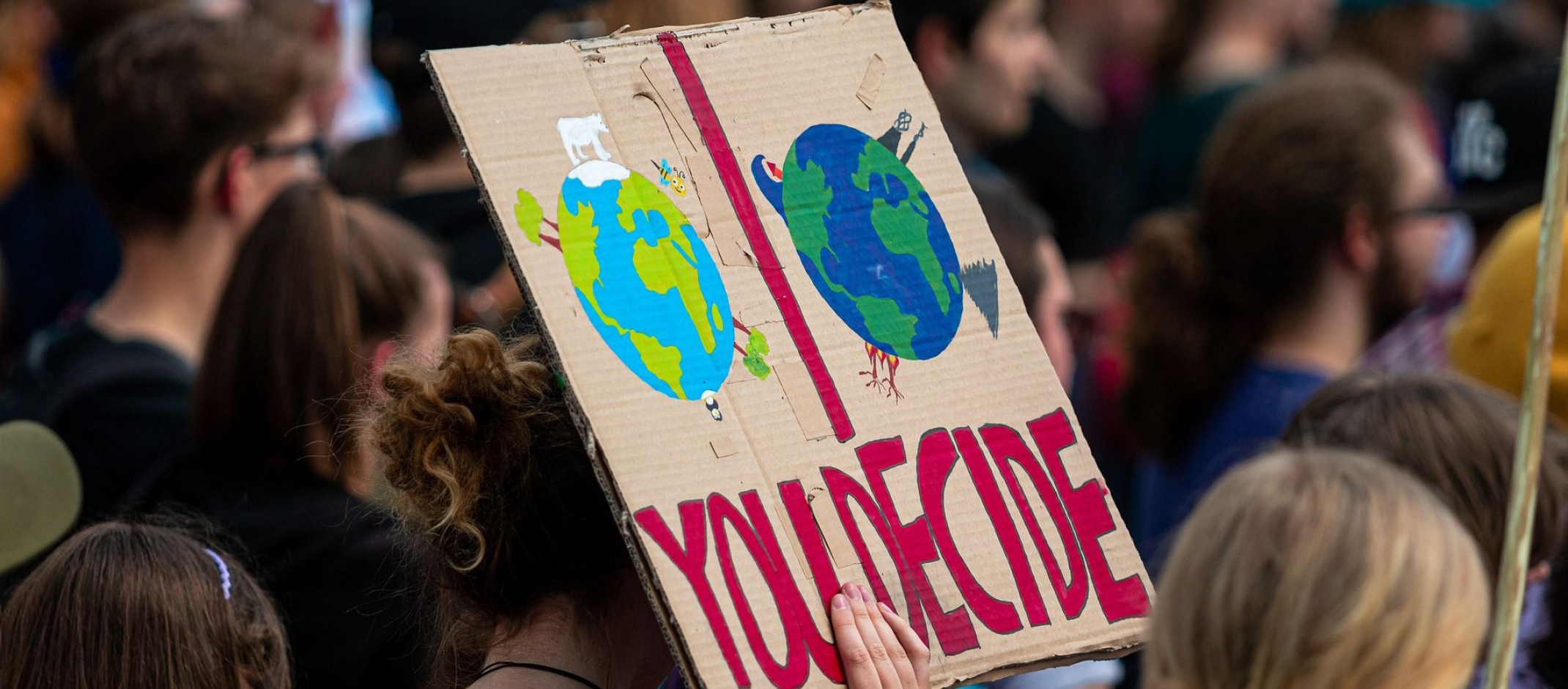Of science and conscience

When is a statement considered scientific knowledge and when does it constitute a political opinion? This question is often under hot debate. As a political scientist, Gabriele Spilker is very familiar with this tension. Her work focuses on climate change and its consequences. At the same time, she is an active member of "Scientists for Future". In an interview, she explains how she differentiates between these two environments and advocates for courageous science communication.
Gabriele Spilker, what has motivated you as a scientist to get involved in fighting climate change?
To answer that question, I need to share a bit about my personal background. It took a long journey for my roles as researcher and climate activist to complement each other. In my role as a political scientist, I produce scientific findings based on scientific methods. This means my research strives to be objective and reproducible and is not geared towards a predetermined outcome. For a long time, this meant that I kept a strict separation between my scientific work and my commitment to protecting the climate.
Over the years, though, my research has increasingly focused on the societal consequences of climate change and its impact on migration in particular. As a result, I became more and more frustrated with how clear the scientific evidence is on man-made climate change and yet how little was done politically to prevent its dramatic consequences.

"A turning point for me was when 'Fridays for Future' was established. Through my involvement with 'Scientists for Future' I would like to provide scientific background knowledge on the one hand and actively participate in climate protests on the other."
Gabriele Spilker
And who takes part in climate demonstrations: the political scientist Gabriele Spilker or the climate activist?
For me, it is very important to always make this transparent. Whenever I speak at demonstrations, I make clear: Now, I speak as a scientist about findings from scientific research. Or, I speak as the private person Gabi Spilker. I think this is extremely important in order for researchers to maintain their credibility. When I speak as a scientist, I talk about scientific findings, and I clearly state this fact. In such cases, I do not speculate about or make specific political recommendations for taking action. Rather, I point out the consequences of certain policy measures and explain the tension surrounding them. As a private person, I obviously have my own preferences in the political negotiation process, but that is the point at which my personal opinion steps in. And I must state this fact just as clearly.
Climate change is a topic of scientific research. Is there a difference between how science communication takes place in the natural sciences versus the social sciences?
I think science communication is sometimes easier in the natural sciences. My colleagues can say: These are the hard, indisputable facts. In political science, however, there is always debate. We show, for instance, how different policy measures impact specific population groups and what distributive consequences a certain measure has. Therefore, there is typically a political trade-off and this can make things a bit more complicated for us social scientists. The natural sciences lay the foundation for agreement on needing to do something about climate change. But the devil is in the detail when it comes to the question of the right measures to take, which is a topic for the social sciences.
Is it possible that the emotionally charged nature of topics such as migration or climate change simply cannot be discussed as objectively or rationally?
I'm not sure which one is the chicken and which one is the egg. For a very long time, climate change was not a particularly emotional topic for many people. It wasn't an issue you could win elections with. This contrasts with migration, where there has always been and continues to be a pretty clear positioning of the political parties. The situation with climate change has only changed significantly in recent years. In my view, the reason for this is that we have now reached a point where taking steps to combat climate change requires making decisions about distribution. Someone has to pay for the costs of climate protection measures. Depending on how they are designed, these measures affect some people more than others. And that is the point at which debate starts and emotions come into play. By the way, people's reactions can be different, depending on the type of measure. For example, people often respond much more emotionally to bans and automatically take up a posture of resistance.
According to the 2023 survey "Wissenschaftsbarometer", two-thirds of the German population would like politics to be based on scientific findings. With this in mind, how do you explain the impression that there are so many negative and distrustful views on science?
This trend concerns me greatly when it comes to climate change. Right-wing populist parties are taking up climate as an issue. Very often, these parties employ an "anti-elite narrative". The story goes, "we speak for everyday people, but it is the corrupt elite that prescribes how we do things". Especially when it comes to climate change, universities are classified as part of these elites. Science sceptics are strongly represented among these parties' voters.
"Providing a clear counter-narrative – that the academic elites are not just making things up – is incredibly difficult."
Gabriele Spilker
With these right-wing populist narratives in circulation, do researchers have an obligation to become more activist and politically involved in enacting climate protection measures?
On the one hand, yes, and I have plenty of colleagues who are active on a variety of platforms and share fact-based information on climate change there. It is also important to me to continue to take part in climate protection events, present research findings there, and make it clear that these findings are not opinions. But is that enough? Especially on social media, I'm unsure if it's really possible to get anything moving or make a difference. At the same time, we can't just stick our heads in the sand. We have to be visible in a variety of media. That's why I think a bold communication strategy is extremely important at universities and research institutions.
So you are calling people less to activism and more to bold science communication?
I would never tell people to be activists. Science and climate activism are two different things. As Gabi Spilker, the person, it is important to me that in politics we see more ambitious climate action. As a researcher, I engage in conducting science and in science communication, although I must admit this is not always our strong point as researchers. Our Cluster of Excellence "The Politics of Inequality" provides huge support and it's great that we have so many options in this area. It is still an incredibly difficult balancing act. In general regarding climate change, I still see potential for getting the topic into the media and telling a counter-narrative. Overall, I would say that climate activism is a personal matter whereas fact-based science communication is our professional responsibility.
Gabriele Spilker is a professor of international politics – global inequality in the Department of Politics and Public Administration at the University of Konstanz and co-speaker of the Cluster of Excellence "The Politics of Inequality". There, she leads a research project along with Sebastian Koos entitled "Climate Inequalities in the Global South: from Perception to Protest". Since 2019, she has been an active member of "Scientists for Future", an association of researchers who provide scientific support for the youth movement "Fridays for Future".
